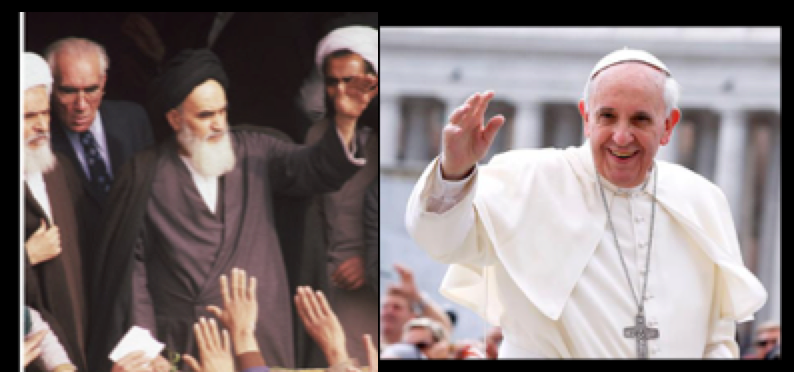Visit our Facebook page and follow us on Facebook for our latest articles!
This week, Pope Francis is scheduled to speak before the US Congress, and is expected to follow his politically divisive views on a host of issues from capitalism to climate change. How would a believing follower of the Church reason against an economic system or another matter that the leader of the Catholic church has determined to be un-Godly or “the dung of the devil?” He/she wouldn’t. And that is the nature of the danger in Pope Francis’s political religion advocacy.
The Pope’s political power hunger as a left-leaning activist has manifested itself in a variety of topics where he echoes an Occupy Wall Street activist more than a spiritual religious leader. By way of example, the Pope has released a 180-page encyclical on the environment essentially calling for eradication of fossil fuels, and even rejecting “simple solutions” such as cap and trade. He has gone so far as calling modern capitalism “the dung of the devil” and the underlying cause of global injustice. Pope Francis has even entered the realm of brokering international diplomatic relations by playing a pivotal role in the Obama administration’s reestablishment of US-Cuba diplomatic relations.
Once a religious leader—especially one with the stature of the Pope—makes a determination for its followers based on religious teachings, the followers’ ability or willingness for independent and critical thinking or voicing an opposition is greatly hindered. Simply stated, you cannot reason against God—and anyone who has argued with a religious believer in favor of the use of birth control can attest to that. In the case of the Pope’s view on climate change, Austen Ivereigh, who has written a biography of the pope, noted that “Francis has made it not just safe to be Catholic and green; he’s made it obligatory.”
Now, while one can justifiably question the Pope’s expertise in issuing religious decrees on highly technical issues from economy to environment for 1.2 billion Roman Catholics, that is not the point of this post. Any person is entitled to his or her views on any and all issues. However, if the Pope wishes to act as a left-leaning activist, he should not assume the role of a religious leader and then abuse that position. He should simply leave his spiritual role and assume the role of a political activist.
While Pope’s advocacy is nowhere near the level of political religion as it exists today in the Middle East, he is navigating on dangerous territory. For years, the Middle East has suffered from political religion—that is government that is directed by or through religious leaders and based on religious beliefs. A prominent example is the Islamic Republic in Iran—where a secular kingdom was replaced by a theocracy in 1979. While the theocracy has caused substantial limitations for the people inside of Iran, from dress code to school choice, it has also had significant ramifications across the region from founding and arming of various terrorist groups in opposition to Israel to arming of other terrorist groups in order to expand Shia Islam. With the removal or weakening of other secular regimes in the region, such as Saddam Hussein of Iraq and Bashar Al Asad of Syria, and expansion of political religion (in that case, Islam), the problems of permitting political religion to foster and spread are even more apparent.
The founding fathers of the United States recognized the dangers of political religion when they built a system based on the separation of church and State. And that system has worked better than any other system in the world for more than 200 years. Pope Francis is encroaching on dangerous grounds that borderline abuse of his position. He is pursuing political goals under the guise of religion and spirituality—a combination that has failed throughout history and that continues to fail to date in the Middle East and elsewhere. As Catholic Congressman Paul Gosar (R-AZ) who will boycott the Pope’s speech noted, “when the Pope chooses to act and talk like a leftist politician, then he can expect to be treated like one.”
Share with others: